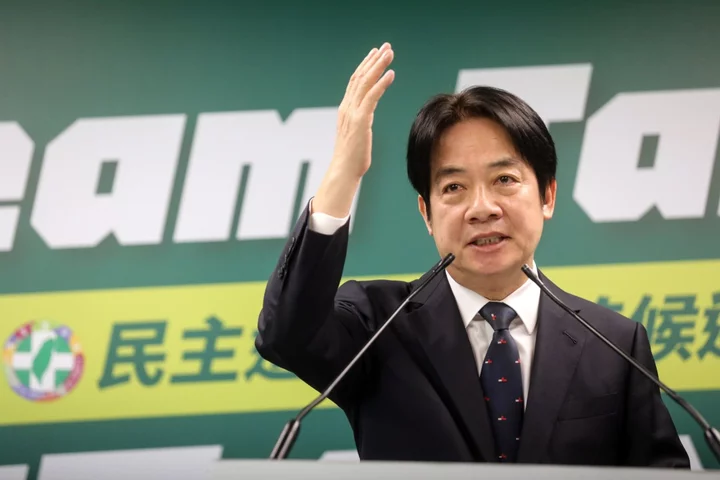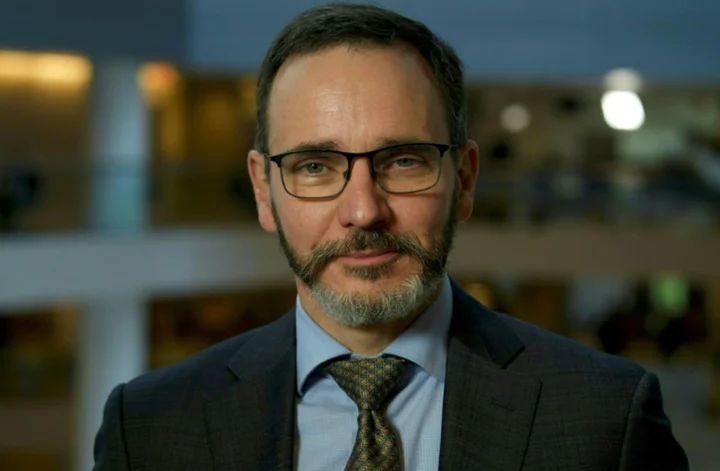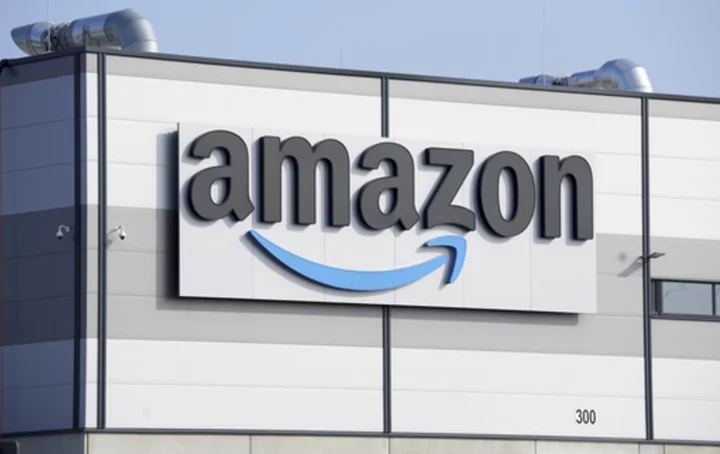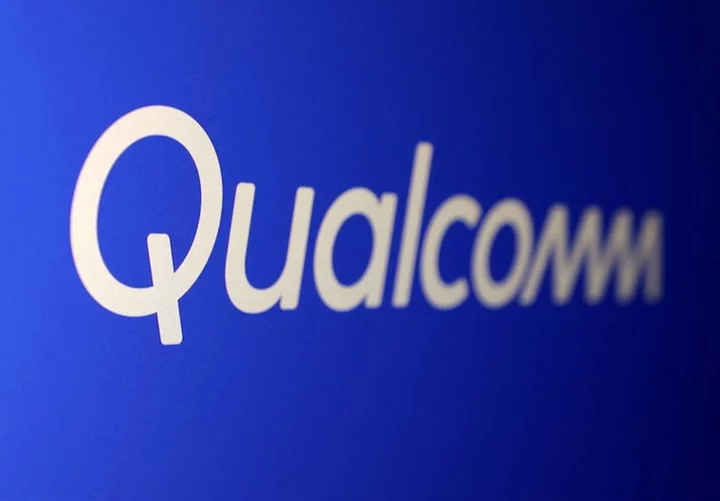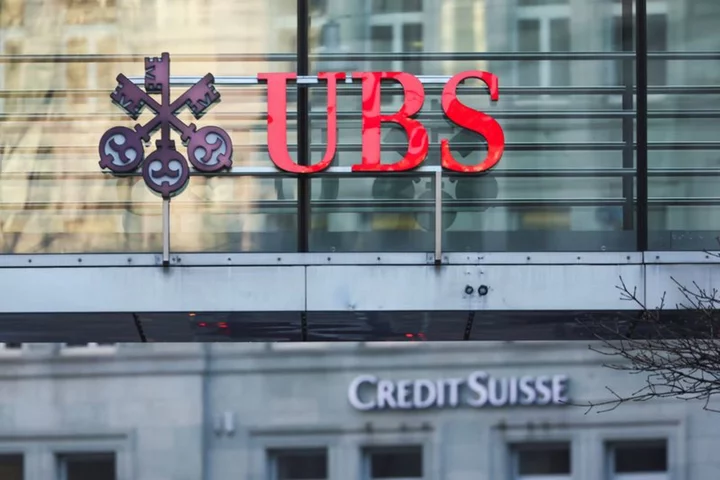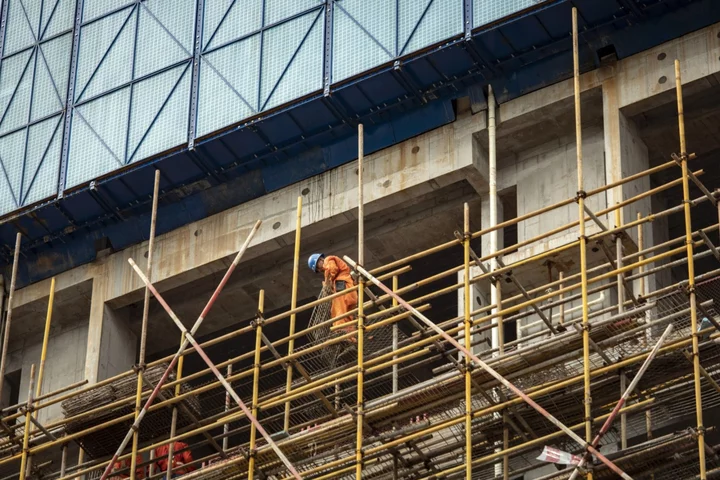The Biden administration is preparing for visits from Taiwan’s top presidential candidates in the coming weeks, as the US balances its support for the island’s democratic elections with managing Beijing’s reaction to the trips.
Taiwanese Vice President Lai Ching-te, who is also the presidential candidate of the ruling Democratic Progressive Party, will pass through New York on Aug. 12-13 on his way to attend Paraguay’s presidential inauguration. He will then stop in San Francisco on Aug. 16-17 on his way back to Taipei.
People familiar with the planning emphasized his trip would be low-profile and follow precedent with previous vice-presidential transits. Lai plans to meet with officials from the American Institute in Taiwan and with the Taiwanese community in the US, they said.
Still, Beijing opposes any engagement between the US and Taiwan, and has responded forcefully to high-level meetings in the past. A spokesperson for China’s Foreign Ministry said earlier this month that Beijing “firmly opposes any visit by ‘Taiwan independence’ separatists to the United States in any name or under whatever pretext.”
Lai’s trip follows a flurry of talks between top US and Chinese officials in recent months, as the White House tries to mend ties with its biggest economic and geopolitical rival to pave the way for a meeting between leaders Joe Biden and Xi Jinping later this year.
Taiwan is one of the main flashpoints in US-China ties. Over the past year, the Biden administration’s increased military support for the self-governed island, while visits to Taipei by US lawmakers have only inflamed the broader relationship.
After then-US House Speaker Nancy Pelosi traveled to Taipei last year, Beijing responded with unprecedented military activity around Taiwan that included firing missiles over the island. China also cut off military communications with the US, a move the White House called irresponsible.
President Tsai Ing-wen’s meeting with House Speaker Kevin McCarthy during a similar transit in the US in April prompted the People’s Liberation Army to hold major military drills around the democracy of some 23 million people.
Election Race
As Taiwan prepares to pick its next leader in January, the top candidates’ positions on cross-Strait relations are being scrutinized not only by voters, but officials in the world’s biggest economy.
It’s customary for Taiwan’s presidential frontrunners to visit the US and meet administration officials and lawmakers, as well as speak to US research groups, ahead of elections.
Lai’s DPP sees Taiwan as an already de facto independent nation separate from China. But his campaign has been keen to portray the vice president as a responsible partner in managing one of the world’s most sensitive geopolitical relationships.
Hou Yu-ih, the candidate of the opposition Kuomintang — China’s preferred negotiator — will likely visit in September, people familiar with his plans said. Ko Wen-je of the Taiwan People’s Party has already been and is unlikely to return before the election, people briefed on his travel plans said. The two men are jostling for second place in the polls.
Lai, as the vice president, is constrained in where he can travel and who he can meet. As a sitting senior official, he’s not allowed to go to Washington, as part of an agreement that’s guided US policy on Taiwan since 1979.
Lai is not expected to meet any American lawmakers or senior administration officials on this trip, people familiar with the plans said. His team hopes to send his vice-presidential pick to the US later this year, people familiar with the internal deliberations said.
Biden administration officials have stressed the US is impartial in Taiwan’s race and will work with whoever is elected, regardless of party affiliation. That means the US gives the leading candidates equal access to American officials.
That’s important because in 2011 an unnamed US official’s criticism of Tsai Ing-wen, now the president, is widely viewed as being at least partially responsible for her election loss in 2012.
Strategic Ambiguity
For decades, the US has adhered to a policy of “strategic ambiguity” on Taiwan, which has seen Washington policy makers avoid a clear commitment to defend the island from Chinese attack. Biden’s repeated statements that he would defend Taiwan militarily if China invaded in recent years have appeared to undermine that position.
Exchanges between senior US officials and Taiwan’s candidates are crucial to ensure a mutual understanding on such issues, and maintaining peace and stability in the Taiwan Strait, people familiar with the matter said.
What makes these face-to-face conversations even more important this time around: None of the candidates have much experience on foreign policy or national security issues.
Wen-Ti Sung, a nonresident fellow with the Atlantic Council’s Global China Hub, said Lai’s trip would likely be a “storm in a teacup,” noting that he’d been taking a more moderate line on China since winning the nomination.
“Unleashing another round of fire and fury at this juncture would only harden Lai again and make life difficult for Beijing’s friends in Taiwan,” he added.

